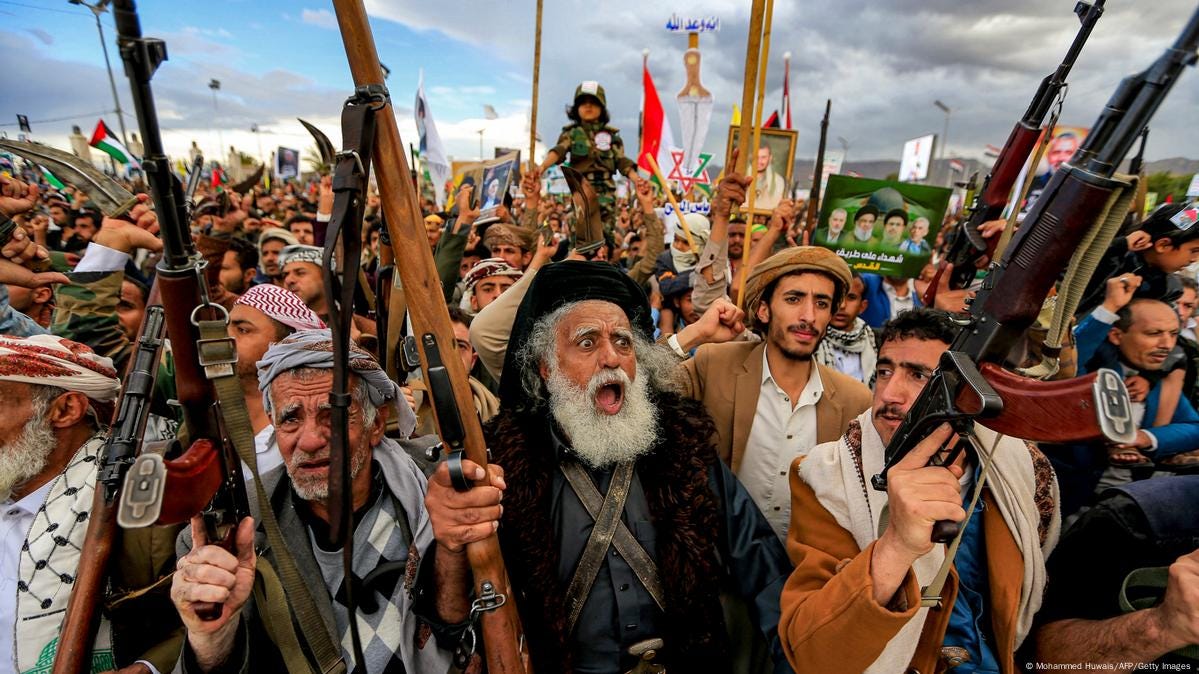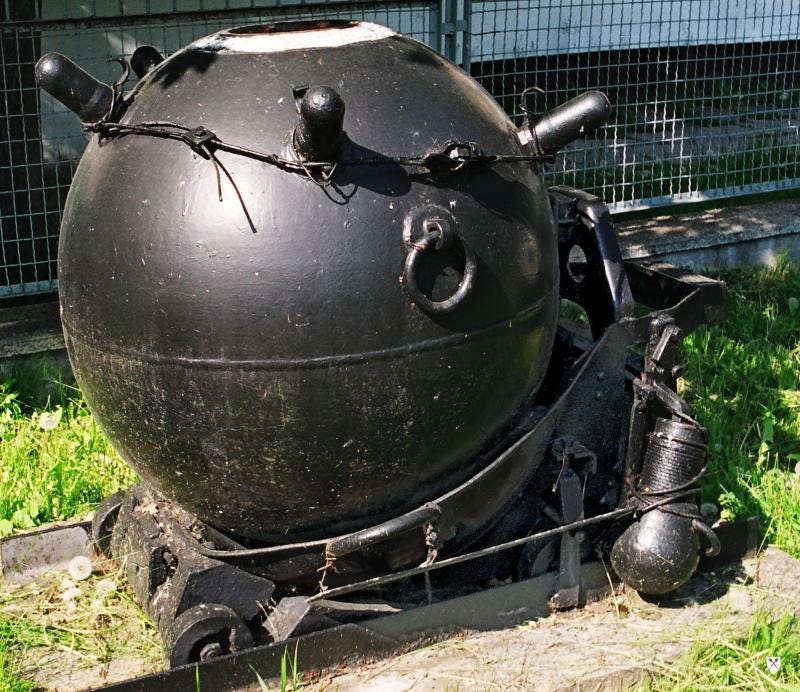This is not the first time I’ve taken up the subject of the Houthis, but their recent missile strike against Tel Aviv’s Ben Gurion airport has served as a reminder that the problem hasn’t gone away and is unlikely to unless someone does something drastic.
First of all, who even are the Houthis?
Houthis clamoring for trans rights. Just kidding.
The term Houthis is applied to people associated with a movement led by a family—the Houthi family—that in 2004 took up arms against the government of Yemen, and which now controls much of the country, including the capital, Sanaa. Although the conflict is not at its core about confessional differences, Houthis draw from and strengthen their identity as adherents of the Zaydi offshoot of Islam. There are tribal elements as well. There also are various interlocking economic and political factors. Basically, it’s complicated.
Perhaps the most pertinent thing to know is that the government of Yemen, despite being at war with the Houthis on and off again since 2004, has proven incapable of defeating them, and reportedly its strong-armed tactics only succeeded in strengthening the Houthi movement. In 2015, Saudi Arabia led an international coalition against the Houthis in support of the Yemeni government. The nations that contributed air, ground, and naval assets to the campaign included the United Arab Emirates (UAE), Bahrain, Kuwait, Qatar (which in 2017 was expelled because of the diplomatic crisis between in and Saudi Arabia), Egypt, Jordan, Sudan, and Morocco. Saudi and the UAE contributed the lion’s share of the force. They and Sudan contributed all the ground troops.
The Saudi-led coalition brought to bear powerful military capabilities and advanced weaponry, essentially all the top-tier Western armaments Gulf oil money can buy. Yet the coalition failed. Saudi basically gave up in 2023. The civil war is still ongoing, but the Houthis now are the masters of much of Yemen and free to conduct missile attacks against international shipping and Israel.
The reasons for the Houthis resilience are numerous, but they include several factors that apply equally to U.S. attempts to bring them to heel. First, it turned out that Saudi reliance on air power meant little to the Houthis. There is not much to bomb in Yemen, but the nature of Houthi rule and how they operate makes them doubly resistant to air strikes. Basically, the Houthis as an organization are dispersed and rely on tribal networks. They are classic guerrilla fighters and proficient at asymmetrical warfare. Second, their leadership, at least, appears to be strongly ideologically motivated. They are not likely to give up just because they are living rough.
All of this strongly suggests that the current American bombing campaign and occasional Israeli raid is unlikely to yield dividends. American air power did little good in Afghanistan; Israeli air power seems incapable of delivering either to Hamas or to Hezbollah a knockout blow. The lesson learned over and over again is that air power simply is insufficient for winning many kinds of conflicts. If one really wants to do something about either the Houthis, Hamas, or Hezbollah, one has to invade and occupy. Or…think of something else, something other than airstrikes.
Look, I’ll be blunt: To hell with the Houthis. They are religious nut cases who, having eradicated Yemen’s Jewish population, aspire to drag their country even deeper into the Middle Ages. If I thought bombing them would do any good, I’d be all for it. But I don’t. We know it won’t work for the reasons mentioned above, plus the fact that they probably like being bombed. They like being martyrs; they like immiserating their people. They are motivated by religious zeal, hatred, and ressentiment of the sort I discussed last week. There is zero chance Houthi leadership will say, “American and Israeli reprisals are making our people suffer more than we can bear…let’s lay down our arms.”
Invasion would work, but it’s a terrible idea. Afghanistan all over again. What else can one do? The question that must be answered is, where are the regime’s pain points? Strong contenders are the two ports under Houthi control, Hudeidah and Saleef. The ports generate revenue for the Houthis, which profit from various fees and the importation of food and refined oil products, which they sell. They redirect or skim humanitarian aid, which means that international aid sent to relieve Yemenis’ misery helps keep the Houthis in power. Much like Hamas in Gaza. Of course, they also use the ports to import missiles from Iran.
A naval mine. Just might work…
Mining or otherwise blockading the ports might do a lot of good, probably much more than air strikes. On the other hand, blocking Yemen’s ports also would sharply degrade the humanitarian situation (not unlike the situation in Gaza). The U.S. could do it. It also could inspect incoming ships. Israel could not. In any case, given the Houthis’ taste for masochism, I’d argue that the pain points to target are not those that might affect the Houthis, but rather their sponsor and the source of their missiles, Iran. Bomb Iran.
As Michael Rubin recently has argued, if Iran strikes one Israeli international airport (which it effectively just did), Israel should strike ten Iranian airports. Take them offline. Rubin asserts:
Only when Israel, Saudi Arabia, and the United Arab Emirates understand that they must respond tenfold to Iran on every strike the Houthis direct their way, will officials in Tehran conclude that the cost-benefit calculations of supporting Houthi terror no longer tilts their way.
I’ve been friends with Rubin since the 1990s. Back then he’d say things like this, and I’d be shocked. I was well to the Left of him. But now, 20+ years later, and with October 7 still on my mind, I find that while he, as far as I can tell, has remained more or less in the same place, philosophically speaking, I am now of like mind. Maybe he was right all along.



